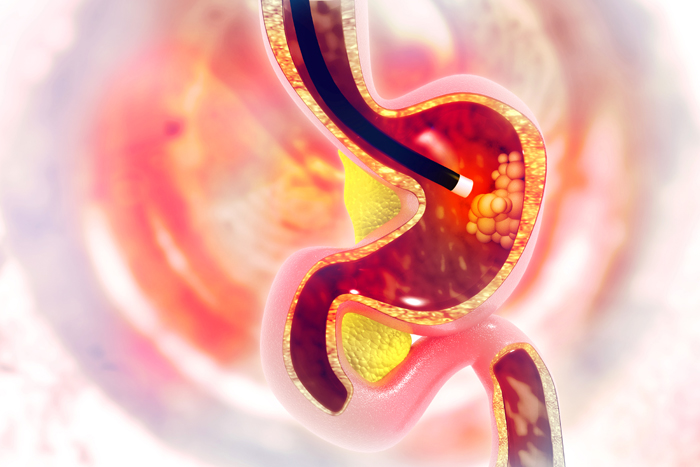Endoscopy Services Treatment & Diagnostics in Chirag Enclave, Delhi
Endoscopy Services
Endoscopy is a surgical procedure that enables a doctor to visualize the internal organs and tissues without making incisions. Doctors perform endoscopy surgery in Delhi to investigate, treat, or diagnose various diseases and disorders.
What Should You Know About the Procedure of Endoscopy?
Doctors use a unique device, an endoscope, for performing an endoscopy. It comprises a thin fiber-optic tube that allows the doctor to view the interiors of the body on a monitor. During endoscopy treatment in Chirag Enclave, a doctor inserts the endoscope directly through the opening of the body, such as the mouth or anus.
Alternatively, doctors also perform endoscopy procedures by making a small incision to pass the endoscope. Doctors also perform an endoscopy to operate or remove tissue from the organ with surgical instruments on the endoscope.

Who Qualifies for Endoscopy?
If you have the following symptoms, then a doctor may recommend endoscopy:
- Difficulty to swallow
- Blood in stools
- Weight loss for no recognizable reason
- Recurrent pain in the abdomen
- Frequent indigestion or heartburn
Endoscopy is a standard procedure to remove a foreign object, widen an opening of a food pipe, remove a polyp, or arrest blood by burning a vessel. Visit any of the best gastroenterologists in Delhi if you are having symptoms.
Request an appointment at Apollo Spectra Hospitals, Chirag Enclave, Delhi
Call 1860 500 2244 to book an appointment
Why Is the Procedure of Endoscopy Conducted?
Endoscopy is necessary for diagnosis, investigation of symptoms, and also for surgical treatment of medical conditions. Your surgeon or gastroenterologist in Delhi is likely to require endoscopy for:
- Diagnosis- Endoscopy can help diagnose several medical conditions such as cancer, anemia, bleeding, and swelling.
- Investigation of various symptoms- The doctor may perform an endoscopy if you have vomiting, difficulty swallowing food or water, stomach pain, or bleeding in the digestive tract.
- Treatment- Some problems of the gastrointestinal tract need endoscopy treatment in Delhi. These are removal of polyps, treatment of bleeding vessels, and removal of foreign bodies.
What Are the Different Types of Endoscopies?
Endoscopies can be of various types. Following are some of the common types as per the area of the body:
- Bronchoscopy – For airways
- Hysteroscopy – For the womb
- Colonoscopy- For large intestine
- Cystoscopy- For bladder
- Arthroscopy- For joints
- Laryngoscopy- For larynges
Endoscopy can also help doctors perform surgeries such as laparoscopy to investigate or operate inside the pelvic or abdominal areas.
What Are the Benefits of Endoscopy?
Endoscopy allows doctors to gain instant access to the internal organs with no large incisions. Therefore, endoscopy can be lifesaving in some situations. Endoscopy is not only an ideal procedure for visualization but is also a useful diagnostic measure. With endoscopy, doctors can diagnose multiple conditions:
- Ulcers
- Ulcerative colitis
- Inflammation of pancreas
- Gallbladder stones,
- Tumors
- Hiatus hernia
- Blockages in esophagus
- Blood in urine
Patients need not stay in the hospital since there is a minimum or no incision during endoscopy. Consult a doctor to know how endoscopy can be suitable for your condition.
What Are the Risks or Complications of Endoscopy?
Usually, there are no serious risks or complications during or after endoscopy. Some of the rare complications are:
- Infection
- Fever
- Pain and numbness
- Perforation or bleeding
If you notice dark stools, blood vomiting, shortness of breath, or extreme pain, then you should report the same to an expert gastroenterologist in Delhi.
Usually, an endoscopy procedure is not painful because doctors use a local anesthetic for numbing the area. The surgery may cause discomfort to the patient. One may experience a sore throat or symptoms of indigestion following an endoscopy.
In some endoscopic procedures that involve the digestive tract, a patient has to avoid eating or drinking for several hours before the procedure. You may have to go on a low-fiber diet before the endoscopy. In case of a colonoscopy, use a laxative to empty your bowels.
The recovery period depends on the type of procedure. You may have to rest for a more period in case of any simultaneous surgery. You will be under observation for an hour after the surgery. Doctors use sedatives to prevent pain during the endoscopy. Therefore, you should not drive a vehicle or resume work for a day.
Doctors regularly perform endoscopy for removing small tumors or gallbladder. Endoscopy is also a suitable procedure to investigate diseases of the digestive or respiratory tracts.


.svg)
.svg)
.svg)
.svg)









